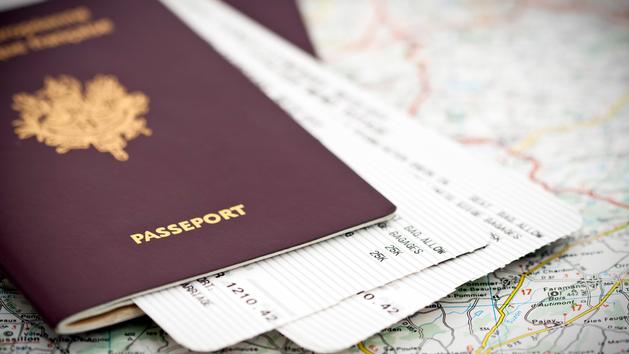We have surely already told you that it is better to buy your plane ticket on Tuesday, that the prices are lower between 1 am and 4 am or on Friday the 13th, on that day of supposed bad luck (or luck, it is according). The web is teeming with wacky and sometimes unfounded advice on train and plane ticket prices. False good plans in cascade, often without tangible evidence to support. To find the best rates, it's best to understand how they vary and work out the consequences.
Read also: Does flying on a Friday the 13th cost less?
Why are the prices constantly changing?
Since the price of a kilo of sugar does not move between entering and leaving the supermarket, why can the price of a plane or train ticket change in five minutes? For a simple reason that should be remembered: trains or planes have a limited number of places while the supermarket can store kilos of sugar and sell them as demand goes. If no one buys one day, the same package will still be on sale the next day.
This is not the case for train tickets, plane tickets or hotel rooms: an unsold ticket results in a net loss of turnover. In short, the seat or the overnight stay are very perishable goods. The companies therefore seek to obtain the best unit recipe, while adapting their prices to their customers, according to their use and their means: the young couple looking for the best price for a weekend getaway or the man of business that favors frequency even if it means paying more.
Read also: Now is the perfect time to buy your plane ticket
How do the algorithms of the SNCF and the airlines work?
To set prices, transport companies rely on three elements: their history which allows them to know the most popular flights; the date of purchase versus the date of departure; and filling. Then each company operates according to its own rules kept secret.
As for train travel, at the SNCF, it is the departure date that prevails over filling. Knowing that 50% of tickets are purchased within seven days of departure, the railway company has every interest in increasing prices as the departure date approaches, even if the train is not full. . This is the reason why you may have paid a high price for your seat and ended up traveling in a half-empty train ...
To then alleviate the problem of empty seats, SNCF offers reduced fares to holders of Senior, Week-end or Family commercial cards in the days preceding departure. If you are the holder of one of these cards, it is in your interest to consult the prices again when departure approaches, even if this means having your initial ticket refunded in order to buy a new one. With this caveat in mind that last minute tickets are often non-exchangeable.
Read also: SNCF: reservation, reimbursement ... What you need to know if you take the train this summer
In general, it is very rare to see prices drop as the departure approaches. Simply because that would be a bad business strategy for customers who buy their tickets in advance. In the air, the Spanish company Vueling - and it is one of the few - however, offers decreasing prices as the departure date approaches.
Overall, carriers rely on their sales history to allocate a larger or smaller number of seats at the lowest fares, left on sale as long as that stock is not sold. Computers are constantly making these calculations, so no need to hope for a cheaper plane ticket because you buy it at two in the morning! Manual interventions only take place in the event of exceptional events: a party whose date changes, an Easter Monday, a new congress which will generate a surplus of demand on a destination ...
Read also: Air France, Aegean, Air Corsica ... Airlines are gradually resuming service
Buy your ticket directly and not through an intermediary
When planning your trip, using a price comparison is never a bad idea. But beware of Google searches and positions sometimes bought by some engines. When you type “Paris Barcelona ticket”, the sites highlighted are not necessarily the most relevant. The most common examples? The Trainline travel agency sometimes appears before the SNCF website, or Google Flights before that of the airline that makes the connection sought.
Should we avoid these intermediaries? Obviously, they do get paid one way or another. It is not uncommon to discover in the last stages of your reservation service charges or credit cards that were not provided for. On the other hand, in the event of an irregularity, it is to this intermediary that you will have to turn. If you have bought a plane or train ticket via a third-party platform and you decide to cancel or modify it, no need to call the company: the intermediary will be your only interlocutor and their business rules are often less flexible than those of the carrier.
Opt for a one-way or a return?
Carriers have very different ticket issuance rules. This is particularly true in the airline industry, with differences between traditional airlines and low-cost airlines. Air France, Lufthansa and British Airways drain a very important traffic of business customers and seek to preserve it. They therefore segment their clientele between professionals and “leisure” clients. When you book a return trip spending the night from Saturday to Sunday or a few days there, the companies conclude that it is a leisure passenger. Conversely, a passenger traveling for business reasons generally books a return trip during the day or a stay over two days. The prices offered are therefore not at all the same. Also, to fly cheaply on Air France, for example, it is better to spend the night from Saturday to Sunday on site or to stay three nights. At British Airways, it will suffice to stay two nights.
To fly cheaply on Air France, it is better to spend the night from Saturday to Sunday thereOn the other hand, easyJet, Wizzair or Transavia do not carry out this segmentation because the majority of their customers are leisure. For low-cost travelers, a return ticket is the sum of two one-way trips. To take advantage of this, consider combining your flights: take the outward journey with one company and return to another. Be careful, however, to the rule for checked and cabin baggage, which often differs from one company to another. With traditional companies, on the other hand, it is always more interesting to make the round trip with the same company to benefit from better prices.




/cloudfront-eu-central-1.images.arcpublishing.com/prisa/SPWDCKJ77JHBZJ2MK2VVRXGWXY.JPG)




